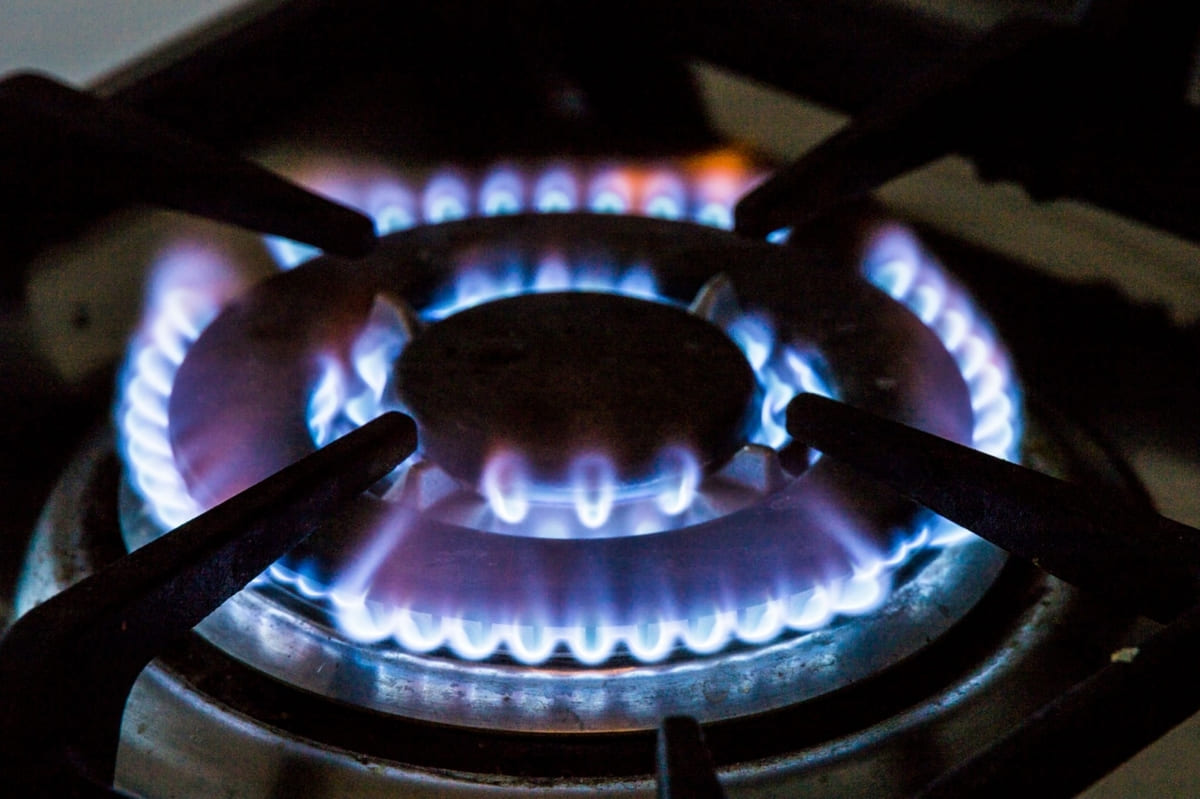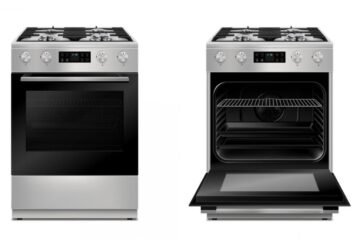The Biden Administration is reportedly considering a ban on gas stoves throughout America. The proposal is based on a new study that claims gas stoves and other gas connections in homes cause indoor pollution, which has been linked to asthma in some children. While some federal lawmakers have called for regulation to address the potential health risks, others are pushing back against the idea of a gas stove ban.
Richard Trumka Jr., a US Consumer Product Safety commissioner, has been vocal about his support for a ban on gas stoves. He argues that the emissions from gas stoves pose a serious health risk, particularly to children, and that a ban is necessary to protect public health. However, not everyone agrees with Trumka’s position. Some critics argue that a ban on gas stoves is unnecessary and would be too costly for many households, particularly those in low-income areas.
Environmental Impact
Air Pollution
Gas stoves contribute to air pollution by releasing nitrogen oxides, carbon monoxide, and other harmful pollutants into the atmosphere. These pollutants can cause respiratory problems and aggravate existing conditions like asthma. In fact, a study in December 2022 found that using a gas stove was associated with an increased risk of asthma among children.
According to the U.S. Environmental Protection Agency (EPA), indoor air pollution can be two to five times higher than outdoor air pollution. This is particularly concerning since most people spend the majority of their time indoors. By banning gas stoves, the government hopes to reduce indoor air pollution and improve public health.
Greenhouse Gas Emissions
Natural gas is a fossil fuel that releases greenhouse gases when burned. In fact, the EPA estimates that 13% of U.S. greenhouse gas emissions come from residential and commercial buildings, with the majority of those emissions coming from natural gas use. By banning gas stoves, the government hopes to reduce greenhouse gas emissions and slow the effects of climate change.
Switching to electric stoves powered by renewable energy sources like wind and solar power can significantly reduce greenhouse gas emissions. Additionally, electric stoves do not release harmful pollutants into the air, making them a cleaner and safer option for cooking.
Public Health Concerns
Indoor Air Quality
The potential ban on gas stoves is driven by concerns over indoor air quality. Gas stoves release nitrogen dioxide, carbon monoxide, and other pollutants that can have adverse effects on human health. According to the American Lung Association, nitrogen dioxide can cause respiratory problems, including wheezing, coughing, and shortness of breath. Children, the elderly, and people with asthma are particularly vulnerable to the effects of indoor air pollution.
Research has shown that cooking with gas stoves can significantly increase indoor air pollution levels. A study by the Lawrence Berkeley National Laboratory found that gas stoves can produce indoor nitrogen dioxide levels that exceed outdoor air quality standards. The study also found that using a range hood can reduce indoor air pollution levels.
Respiratory Health
The potential ban on gas stoves is also driven by concerns over respiratory health. Exposure to indoor air pollution from gas stoves can exacerbate respiratory conditions such as asthma and COPD. According to the Centers for Disease Control and Prevention, asthma affects approximately 25 million people in the United States, and COPD affects approximately 16 million people.
A study by the University of Sheffield found that exposure to indoor air pollution from gas stoves can increase the risk of respiratory illness. The study found that children who lived in homes with gas stoves were more likely to experience respiratory symptoms such as wheezing and coughing.
Energy Efficiency
One of the main reasons why the government is considering a ban on gas stoves is to improve energy efficiency. Gas stoves are known to be a significant source of indoor air pollution, releasing harmful pollutants such as nitrogen dioxide and carbon monoxide. These pollutants can cause respiratory problems, especially for children and the elderly, and contribute to climate change.
According to the U.S. Energy Information Administration, residential use of natural gas accounts for 22% of total U.S. greenhouse gas emissions. By contrast, electric stoves powered by renewable energy sources such as wind and solar power can significantly reduce carbon emissions.
Electric stoves are also more energy-efficient than gas stoves, which can waste energy through heat loss and inefficient combustion. A study by the Rocky Mountain Institute found that electric stoves are up to three times more efficient than gas stoves, meaning they use less energy to produce the same amount of heat.
Moreover, electric stoves can be equipped with advanced features such as induction cooking, which uses electromagnetic fields to heat the cookware directly, rather than the air around it. Induction cooking is not only more energy-efficient than gas stoves, but also faster and safer, as it does not produce an open flame.
Alternatives to Gas Stoves
Electric Stoves
Electric stoves are a popular alternative to gas stoves. They are easy to use, require minimal maintenance, and are available in a wide range of styles and sizes. Electric stoves use electricity to heat up coils or elements that transfer heat to the cookware. They are a good option for those who want a reliable and affordable cooking solution. Some of the advantages of electric stoves include:
- Easy to clean: Electric stoves are easy to clean as they do not have any grates or burners that need to be removed for cleaning.
- Consistent heat: Electric stoves provide a consistent heat source, which makes cooking easier and more predictable.
- Affordable: Electric stoves are generally more affordable than gas stoves, making them a popular choice for those on a budget.
Induction Cooktops
Induction cooktops are another popular alternative to gas stoves. They use electromagnetic fields to heat up the cookware directly, rather than heating up the cooktop itself. Induction cooktops are a good option for those who want a fast and efficient cooking solution. Some of the advantages of induction cooktops include:
- Fast heating: Induction cooktops heat up faster than gas or electric stoves, which can save time when cooking.
- Energy efficient: Induction cooktops are more energy efficient than gas or electric stoves, as they heat up the cookware directly.
- Safe: Induction cooktops are safer than gas or electric stoves, as they do not produce an open flame or hot surfaces. They are also easier to clean as spills do not burn onto the surface.
Costs and Benefits
Initial Costs
One of the main concerns with the potential ban on gas stoves is the initial cost. Electric stoves tend to be more expensive than gas stoves, and this may be a barrier for some consumers. However, it is important to note that there are rebates available for consumers who switch from gas to electric stoves. For example, the Inflation Reduction Act offers rebates of up to $840 for those who switch to electric stoves. Additionally, some states offer their own rebates and incentives.
Long-Term Savings
While electric stoves may have a higher initial cost, they can save consumers money in the long run. Electric stoves are generally more energy-efficient than gas stoves, meaning that they use less energy to cook food. This can result in lower energy bills over time. Additionally, electric stoves do not require a gas hookup, which can also save consumers money on installation costs.
It is important to note that the cost savings associated with electric stoves will vary depending on a number of factors, including the cost of electricity in a given area and how often the stove is used. However, in general, electric stoves can be a cost-effective option for many consumers.
Conclusion
The proposed ban on gas stoves has been a controversial topic in recent years. While some argue that it is necessary to combat climate change and improve indoor air quality, others believe that it is an unnecessary government overreach that will limit consumer choice.
The Consumer Product Safety Commission has proposed the ban, citing gas stoves as a “hidden hazard” due to their potential to release harmful pollutants into the air. However, the ban is not yet finalized and it remains to be seen if it will be implemented on a national level.
In the meantime, some states, such as California and New York, have already taken steps to restrict the use of gas stoves in new construction. This has led to concerns about the affordability and availability of alternative cooking methods, such as induction cooktops.
Overall, the debate over gas stove bans highlights the complex trade-offs involved in balancing environmental concerns with consumer preferences and economic realities. As the issue continues to be discussed and debated, it is important to carefully consider the potential benefits and drawbacks of any proposed solutions.



